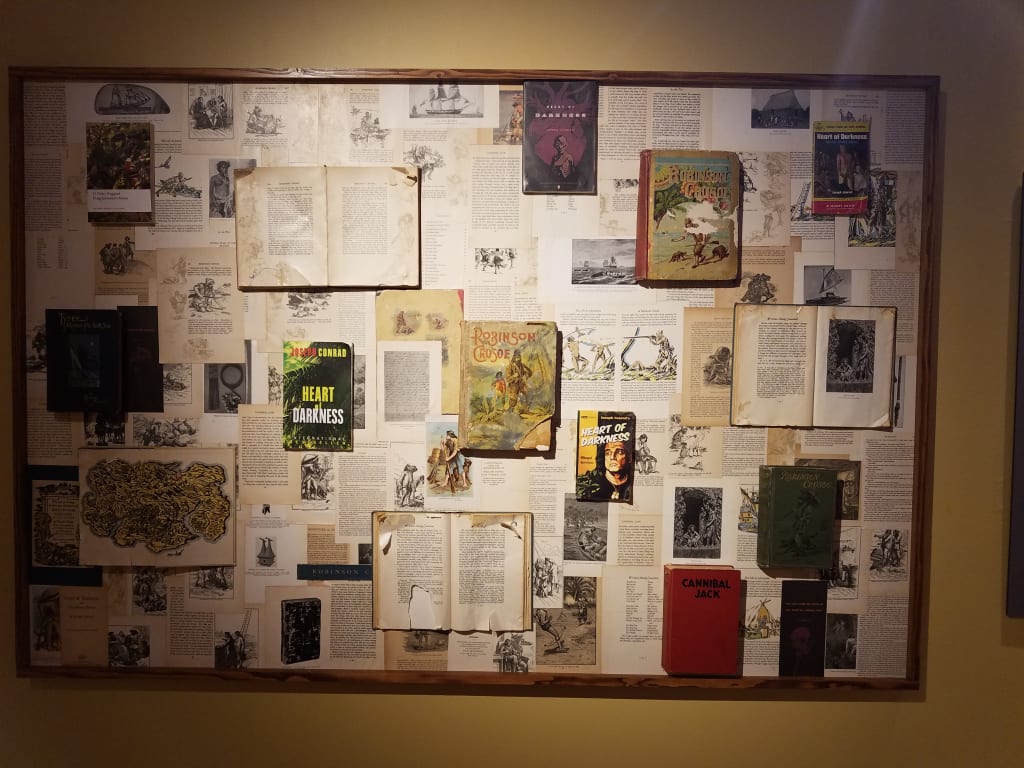
Throughout history, it is noticed that when fear strikes in different shapes and sizes, humans refuse to acknowledge it. We possess a great amount of stubbornness that can either hurt or even save people, as human beings, we would rather live in a world where there is no fear and everything is okay and will be okay. In the book Night, Elie Wiesel demonstrates a few examples throughout the terrifying journey he is forced into. Before his little community was loaded onto a train to be shipped to a camp, they were warned about the dangers that they were to be in by Moishe the Beadle. When they had become prisoners at Auschwitz, a handful wanted to revolt but were persuaded to not be foolish. And finally, with the horrors they witnessed, there remained a light of hope within them that they will be saved and everything will be okay.
In the beginning of the story, Moishe is introduced to the reader as “Moishe the Beadle", as if his entire life he had never had a surname. It is explained, that there was a rule in Elie’s town, called Sighet located in Transylvania, that the townspeople were to help the needy. Even though they did not like the poor, Moishe was the one exception that they did like. He stayed out of everyone’s way and “mastered the art of rendering himself insignificant, invisible,” this man believed that “every question possessed a power that was lost in the answer- man comes closer to God through the questions he asks Him- Man asks and God replies.” One day, he and other foreign Jews were to be loaded on to cattle cars and sent elsewhere by the Hungarian Police, because they were no longer allowed in Sighet. However, not long after they were sent away, they were quickly forgotten and for the townspeople, they believed “life was normal again. A calm, reassuring wind blew through our homes.” Months after, Elie saw Moishe sitting on a bench near the entrance of the synagogue. Moishe informed him that his companions and him had entered Polish territories, the German Secret Police “Gestapo” took over and loaded them into a truck, then headed to the Galician Forest where they dug a trench and were shot down, while the babies were tossed up to be used as target practice. Moishe had been wounded in the leg, left for dead having no idea on how he was able to survive. He tried to explain to everyone the horrors he had witnessed, but no one would believe him. “They think I’m mad,” he whispered, and tears, like drops of wax, flowed from his eyes.” (pg.7). The reason that everyone in Sighet ignored his warnings, which could be assumed, is because he no longer made himself invisible. Desperate to inform his community that they were in grave danger, being mocked drained him. He was no longer joyful. He no longer warned the community; he was no longer himself. “You don’t understand,” he said in despair. “You cannot understand. I was saved miraculously. I succeeded in coming back. Where did I get my strength? I wanted to return to Sighet to describe to you my death so that you might ready yourselves while there is still time. Life? I no longer care to live. I am alone. But I wanted to come back to warn you. Only no one is listening to me…” (pg. 7).
Thereafter, the townspeople’s lives went back to normal and they were thrilled when the news announced on the London radio, “Announced encouraging news: the daily bombings of Germany and Stalingrad, the preparation of the Second Front. And so we, the Jews of Sighet, waited for better days that surely were soon to come.” (pg. 7-8). The Jews held onto any amount of hope, believing that they would not be harmed, because the Allies will stop them. “Spring 1944. Splendid news from the Russian Front. There could no longer be any doubt: Germany would be defeated. It was only a matter of time, months or weeks, perhaps.” (pg.8). Everyone’s hopes were filled to the max, finding humor in the idea that Hitler believed he could annihilate an entire group of people. Unfortunately, soon afterward, another announcement was made, “German troops had penetrated Hungarian territory with the government’s approval. Finally, people began to worry in earnest” (pg. 9). Conversations on the topic spread throughout the town, until they started thinking of how far Germans were really willing to go for Jews. That’s when they started to regain hope, brushing the fear aside, dismissing the idea that Germans were determined to travel all the way to their town for them. “In less than three days, German Army vehicles made their appearance on our Streets” (pg.9). The German soldier's actions towards the Jews gave them hope that they would be alright with the soldiers: they were kind to the hosts they were being housed by, would provide little gifts to the women of the house, but, most importantly, they portrayed a facade to the Jews without letting the townspeople catch on, “Well? What did we tell you? You wouldn’t believe us. There they are, your Germans. What do you say now? Where is their famous cruelty?” (pg. 10). The Germans had fooled the Jews so well that by the seventh day of Passover, the Germans unloaded rules on them. The Jewish leaders were arrested, Jews would be punished by death if they left their homes within the first three days, stripped of any valuables, marked with a yellow star, ghettos were created, and some families were driven out of their homes. Again, even though this time they were surrounded by barbed wire, the Jews believed the situation wasn’t so bad and allowed to let their lives go back to “normal”.
Due to refusing to acknowledge that there was danger lurking around them, they were soon engulfed in the German plot to have them shipped to a concentration camp. Elie and his father were crammed into a car with other Jews with only a bucket of water and a small amount of food. By the time they arrived to Auschwitz, the fear of what they were witnessing finally hit them. The smell of burnt flesh and seeing the flames rise from a tall chimney had them realize what they were in for. The Jews started to whisper, “We must do something. We can’t let them kill us like that, like cattle in the slaughterhouse. We must revolt” (pg.31). These few young men wanted to encourage the rest of their people to rise up against the armed guards and let the world be enlightened on what was really going on in Auschwitz before it was too late. However, it was the fathers of the young men who pleaded for them to not make a rash decision that would have them killed, “We mustn’t give up hope, even now as the sword hangs over our heads. So taught our sages…” (pg.31). It’s true that they were up against men with weapons that could annihilate them right in their tracks while they possessed small knives and their bare fists to fight for their lives, but to rely on hope to save them would have to take a miracle.
In conclusion, it is possible that they could have avoided their fate if they had not been stubborn and listened to Moishe. Not only that, but realized that they were to be confronted by danger when the Germans entered their town and not long after, put up barbed wires that followed with strict rules. It’s human nature to refuse to acknowledge that any moment, life can change, but not for the good. So to protect the mind, a barrier is put up to make life seem as everything is fine and dandy. What keeps emerging in the book is the word “hope”. No matter what was thrown at the Jews, they maintained a small amount of hope that pushed them to keep moving forward. From the beginning, when they would hear announcements on the radio to when they did their march in Auschwitz, hope remained. It’s not only human nature to be stubborn, it is also human nature to keep hope close when everything else is going wrong. These two elements have been the reasons for people to succeed, but can always be the reason they fail.
Work Cited
Wiesel, Elie. Night. Hill and Wang, 2006.
About the Creator
Selena Huerta
Hi, my name is Selena. Here are a few things about me: I graduated community college, I am now a head coach and assistant coach for a cross country team, I love animals, and most of all I love any form of adventures 😊






Comments
There are no comments for this story
Be the first to respond and start the conversation.